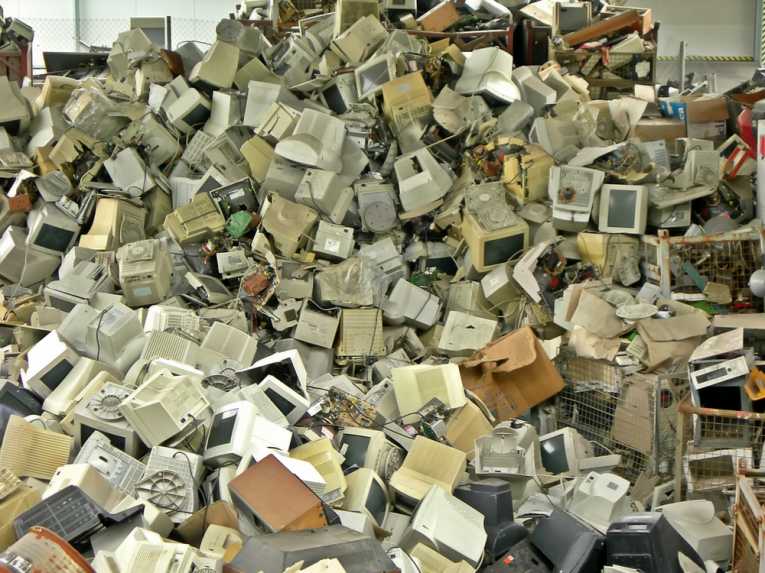Dangerous pollutants have been discovered at a school, market and church near an
electronic waste recycling site in Africa, it is claimed. Tests show that pollutants from lead and other metals at the Agbogbloshie salvage yard, in Accra, the capital of Ghana, are up to 50 times above safe levels.
Sample readings showed high contamination of iron, lead, copper, magnesium and other metals in the area. In soil near the school the amount of lead recorded was 12 times higher than levels at which action is necessary.
Children aged from six-years-old work around the scrap site where electronic equipment, including much from North America and Europe, is stripped of valuable medals and then incinerated.
Ghanaian researcher Atiemo Sampson reported the alarming findings to 20 global graduate researchers attending the Solving the E-waste Problem (StEP) Summer School, in Europe, organised by Umicore and Philips.
Mr Sampson says, "Until now, Ghana has not regulated the importation and management of e-waste.
"The sheer number of people engaged in informal recycling in the Agbogbloshie scrap yard makes it increasingly unthinkable politically to eject them from that location," Mr. Sampson claims.

Caption: The graph shows the estimated health hazard (where 1 = low / no risk) caused by contaminant levels around Ghana's Agbogbloshie metal recycling compound. Site 1) the headquarters of the International Central Gospel Church (CP - on map just above the point marked "mosque"), 2) the dismantling site (DS), 3) the weighing station (WS - on map, near the dismantling site), 4) the trash burning site (BS), 5) the commercial area / market (CA), 6) road dust (RD) and 7) at the neighbouring school (SC - on map, shown as the Ayalolo Cluster of Schools); Credit: Atiemo Sampson
"The livelihood of many people now depends on the income generated by these activities at e-waste scrap yards. Therefore any solution must recognize their role and focus on improving health, safety and environmental standards."
Additional electronic waste facilities are being established elsewhere in Ghana, says Mr Sampson.
"Although Ghana is a signatory to the Basel Convention (which regulates the import and export of hazardous wastes), rules are only now being incorporated into our national legal framework. The government hopes to have new rules in place next year."
Even though the transportation of electronic waste from Europe and North America is prohibited, some still turns up in Africa.

This is a map of a Ghana e-waste site; Credit: Atiemo Sampson
In Ghana, in 2009, a government report stated that around 215,000 tons of electronics goods came into the country and 15% of it was waste. Informal waste recycling could be harmful to health and the environment and a regulatory system for the important of electronics should be set up to encourage responsible recycling in Ghana, it advised.
The topic under discussion at the StEP electronic waste school was how to improve efficiency and close the resource loop.
In addition to Mr Sampson, other members of the StEP School also reported their experiences of recycling. Xinwen Chis, from China, told how established recycling companies were cooperating with up-and-coming competitors. Researchers from Latin America explained how companies were sharing best practices and encouraging regional collaboration.
Attendees also took part in lectures and study tours in Holland and Belgium and met key industry contacts, members of the European Commission, top thinkers and leaders of influential Non-Governmental Organisations.
Philips is adopting "life cycle thinking" in its product design to make it easier to recover metals. Other companies are increasing the amount of recycled content used and recovering key parts.
Umicore is leading the way in the recovery of metals. In its modern facility near Antwerp it is able to extract no less than 17 types of metal from mobile phones, batteries and circuit boards.
The StEP Initiative is a partnership between UN organizations, top commercial and governmental bodies, the scientific industry and Non-Governmental Organisations.










